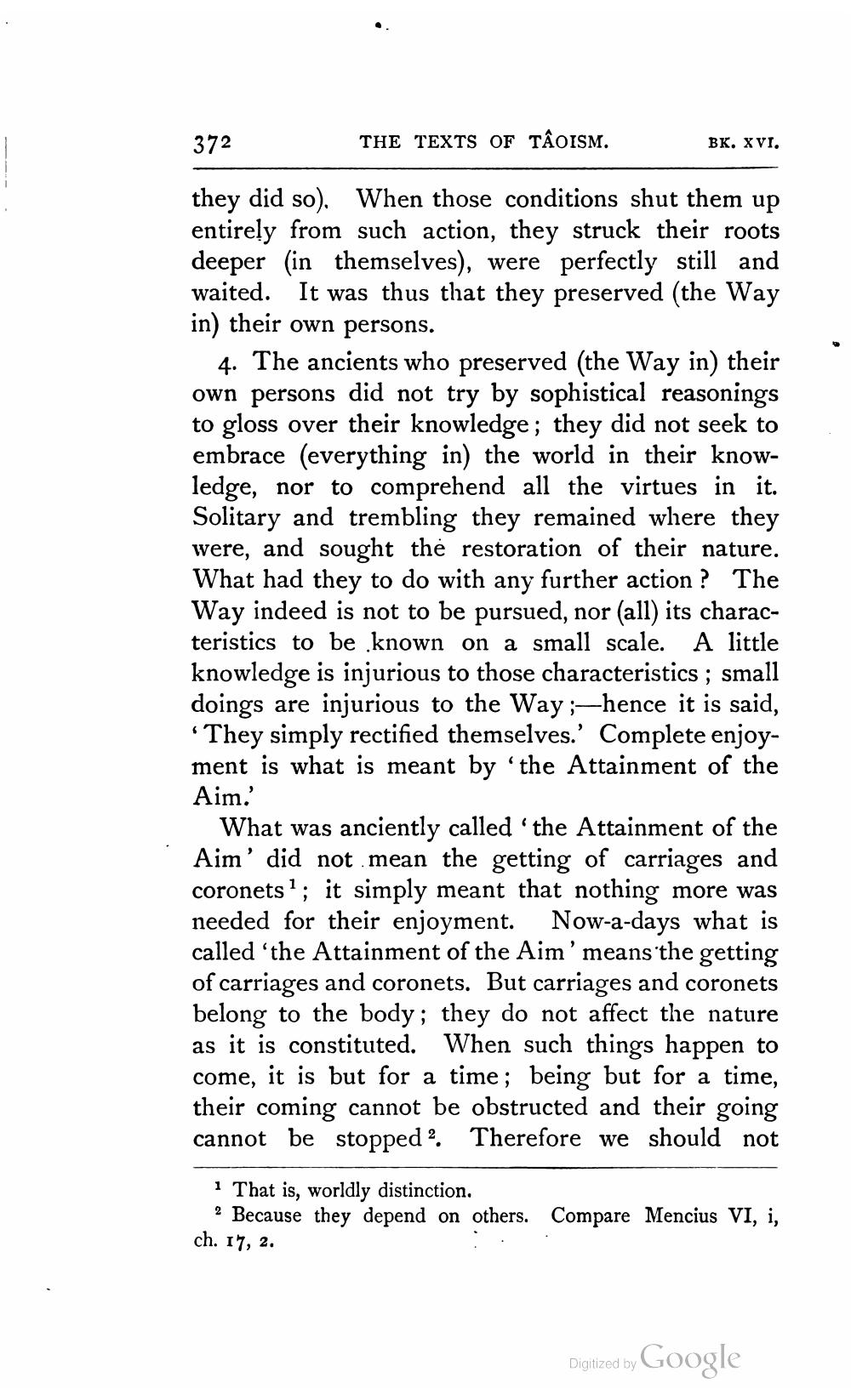________________
372
THE TEXTS OF TÂOISM.
BK. XVI.
they did so). When those conditions shut them up entirely from such action, they struck their roots deeper (in themselves), were perfectly still and waited. It was thus that they preserved (the Way in) their own persons.
4. The ancients who preserved (the Way in their own persons did not try by sophistical reasonings to gloss over their knowledge; they did not seek to embrace (everything in) the world in their knowledge, nor to comprehend all the virtues in it. Solitary and trembling they remained where they were, and sought the restoration of their nature. What had they to do with any further action ? The Way indeed is not to be pursued, nor (all) its characteristics to be known on a small scale. A little knowledge is injurious to those characteristics ; small doings are injurious to the Way ;-hence it is said, "They simply rectified themselves. Complete enjoyment is what is meant by 'the Attainment of the Aim.
What was anciently called 'the Attainment of the Aim' did not mean the getting of carriages and coronets?; it simply meant that nothing more was needed for their enjoyment. Now-a-days what is called 'the Attainment of the Aim' means the getting of carriages and coronets. But carriages and coronets belong to the body; they do not affect the nature as it is constituted. When such things happen to come, it is but for a time; being but for a time, their coming cannot be obstructed and their going cannot be stopped ? Therefore we should not
That is, worldly distinction. ? Because they depend on others. Compare Mencius VI, i, ch. 17, 2.
Digitized by Google




